Do you want to interact with elephants on your trip to Thailand? It’s highly likely, as elephant experiences are one of the country’s main attractions for visitors.
These majestic animals are emblematic of Thailand, so it’s understandable why so many people want to get close to them
What’s more, visitors may have never seen an elephant in their life before, and may never see another again.
At the Phuket Elephant Nature Reserve, we proudly provide ethical elephant activities in Phuket that are based on observation and education. This means no physical interaction at all.
So when we’re asked the question, “Should I ride elephants in Thailand?”, our answer is no. We explain why below.
If you have any questions about our Phuket elephant experiences, please don’t hesitate to get in touch.
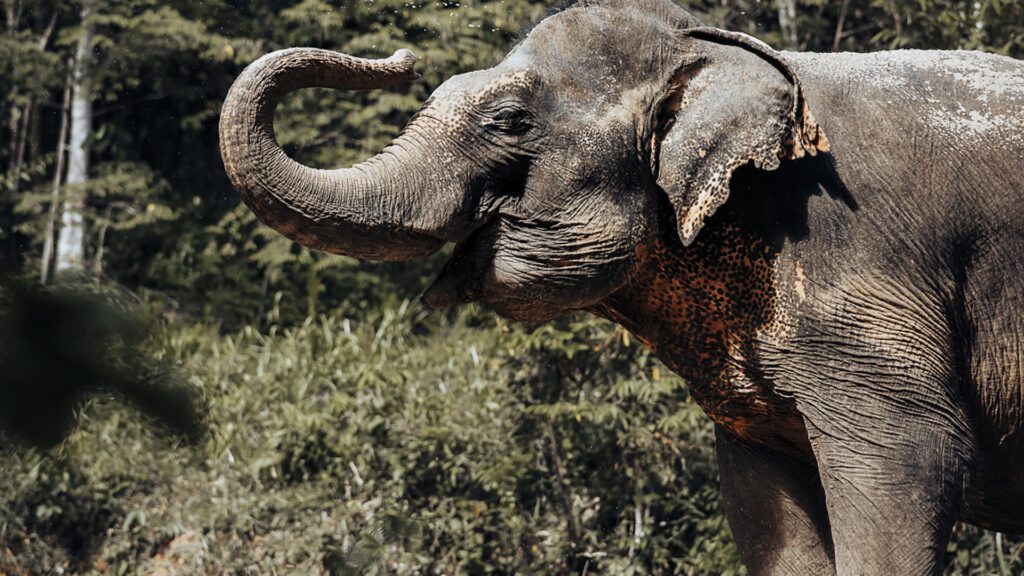
Are You Legally Allowed to Ride Elephants in Thailand?
Yes. If you decide to ride an elephant in Thailand, you won’t be breaking the law. As such, there aren’t any issues from a legal perspective.
Ultimately, the decision will come down to personal opinion. Our feelings about the importance of elephant conservation are a key influence in our decision to not allow elephant riding.
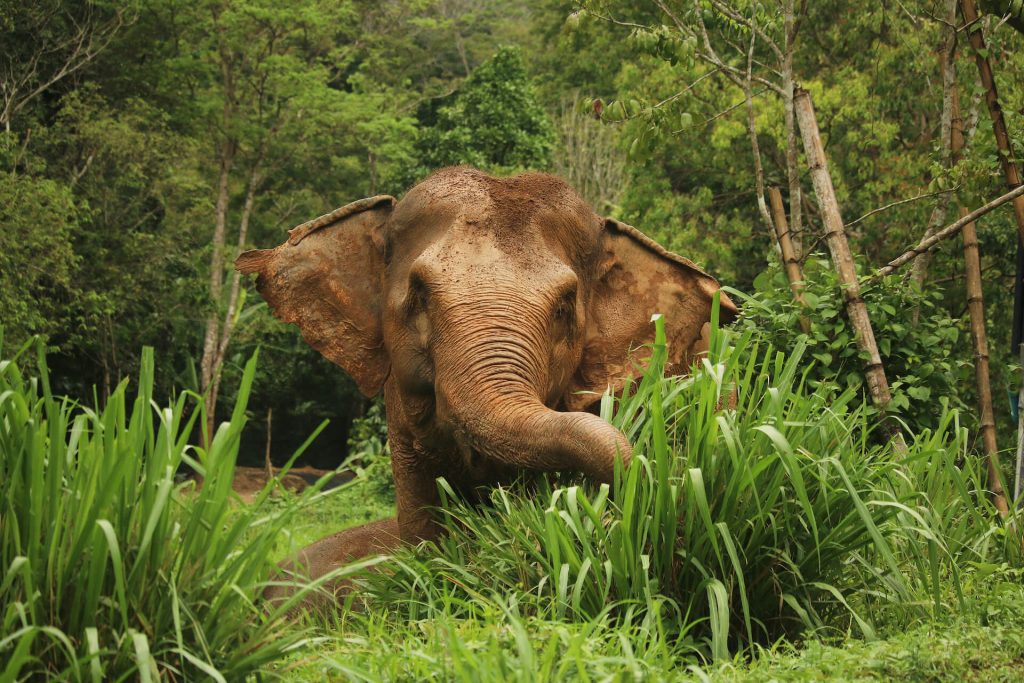
Is it Ethical to Ride Elephants in Thailand?
Ethics are personal, so we can only answer for ourselves. At the Phuket Elephant Nature Reserve, we believe it is unethical to ride elephants.
The elephants we have rescued from situations of cruelty and exploitation are free to enjoy their life in a space that is identical to their natural habitat.
This allows them to behave naturally. Elephants are social, playful animals that love to roam. On our reserve, our elephants can do whatever they want, whenever they want!
Put simply, carrying humans is unnatural behaviour that needs to be taught.
As such, we believe that allowing elephants to live a natural, enjoyable life is the most ethical choice.
With all this and more in mind, read our Guide to Phuket’s Most Ethical Elephant Sanctuary.
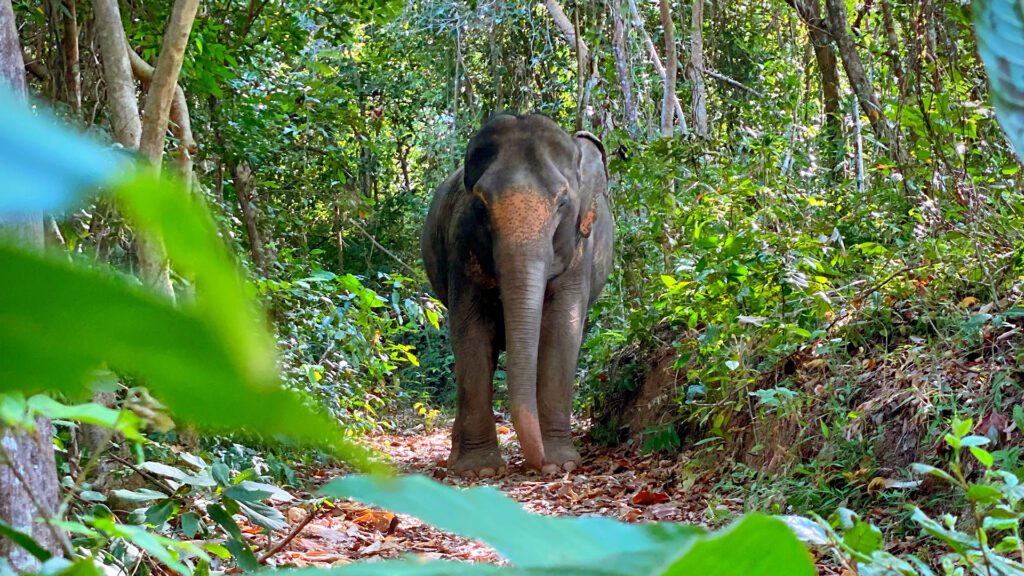
Does Elephant Riding in Thailand Hurt the Elephant?
Yes, it does. As touched on above, the practice of carrying humans — and in some cases a chair (howdah) — on their backs is not natural for elephants.
The act of riding can cause spinal injuries, and trekking long distances also results in long-term wear and tear on the feet.
This is why our Half-Day Elephant Adventure in Phuket, and all our other experiences, focus on observing and learning about the natural behaviour of these gentle giants.
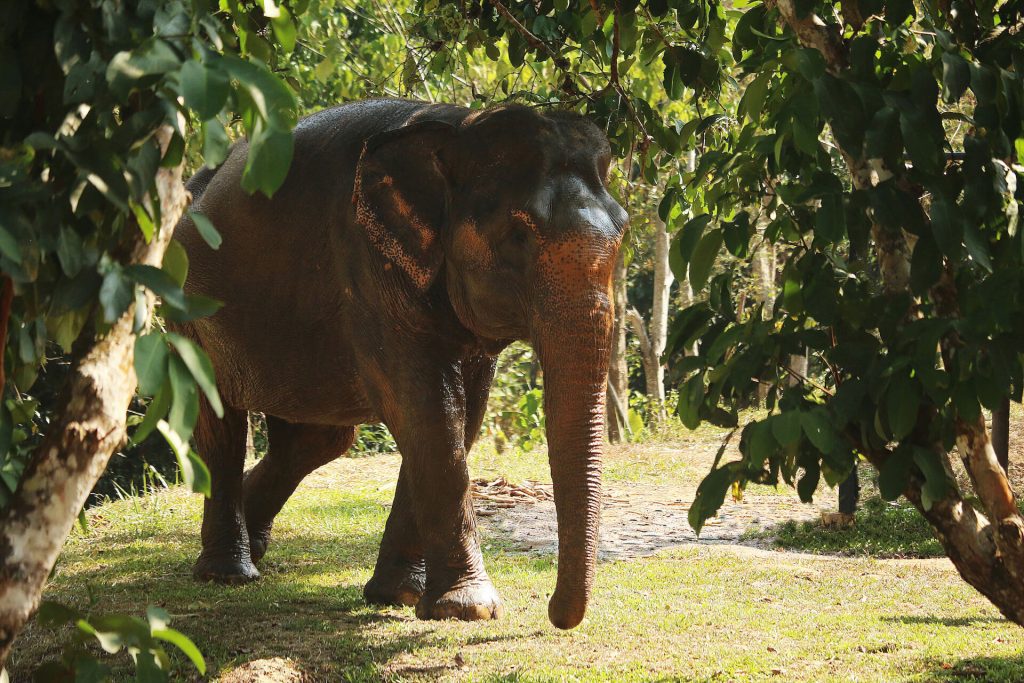
Consider Elephants’ Social Interactions and Living Conditions
Elephants are highly intelligent and emotional animals. They are a lot like humans in many respects. They feel happiness, pain, and sorrow. They socialise and have family and friends.
Aside from the unnatural training practice, elephants used for rides essentially have a job.
This further curtails their natural instincts and can impact their mental health, not just their physical health.
As far as we’re concerned, the last place we would want to be when an elephant is potentially stressed is on its back.
Elephants typically need to eat approximately 150kg of food per day, around 5% to 10% of their body weight. Eating this much food takes between 15 and 18 hours.
As you can imagine, it’s incredibly difficult, if not impossible, for an elephant to do this when “working”.
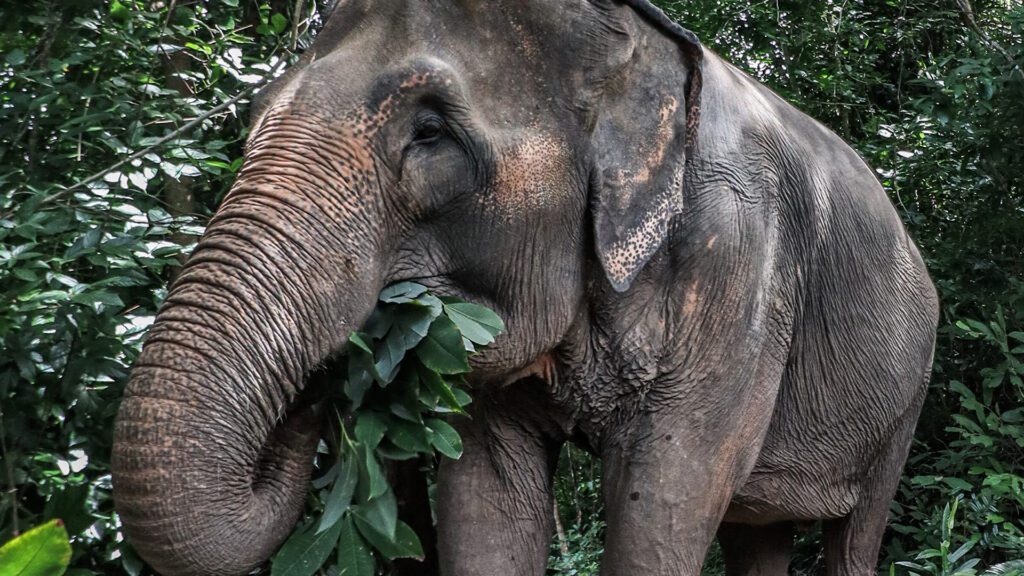
What Can You Do to Avoid Supporting Elephant Riding in Thailand?
Supporting reputable, certified companies that provide ethical elephant activities in Phuket, like the Phuket Elephant Nature Reserve, is an effective step to take.
Knowing that your experience benefits you, the animals, and the company that cares for them allows you to create a memory you won’t forget — or regret.
Watching an elephant behave as nature intended is an incredible experience.
With the support you provide, we can try to rescue more elephants and bring them into this healthy and happy environment.
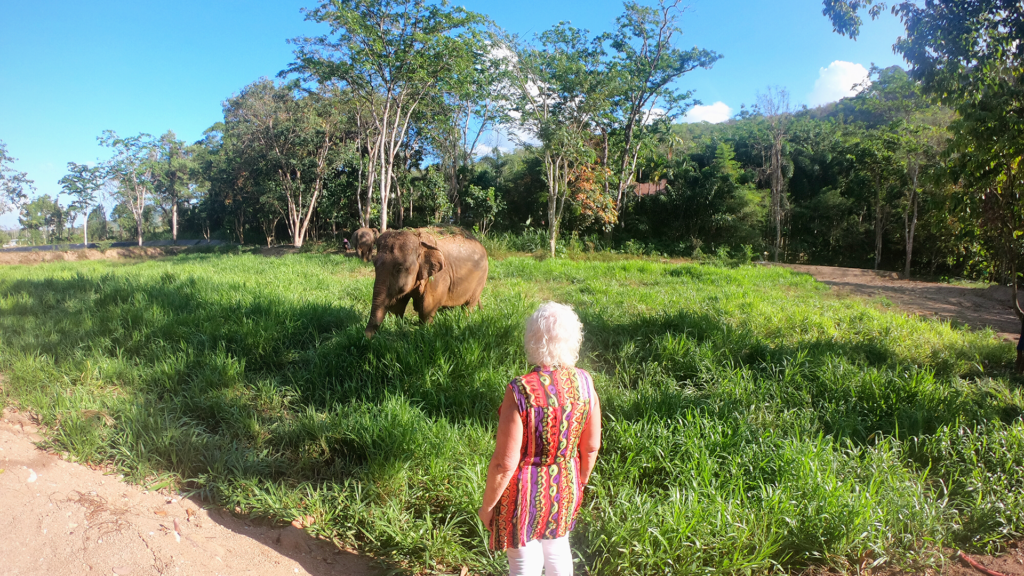
Get to Know the Phuket Elephant Nature Reserve Better
We are located in a lush jungle on the west coast of Phuket, only a short drive from famous beaches like Kamala, Surin, and Bang Tao.
Our reserve offers a sanctuary for tired, overworked elephants rescued from the tourist industry. Every aspect of what we do is geared towards education, sustainability, and being as eco-friendly as possible.
The elephants in our care have come from circus shows, riding parks, street begging, and the logging industry. Now, however, they have a safe home where they can live a peaceful, protected life.
We proudly provide the highest elephant welfare standards. The ACES (Asian Captive Elephant Standards), with whom we have a close partnership, awarded us Gold Star accreditation.
Discover more about the Phuket Elephant Nature Reserve and what we provide on the About Us page.
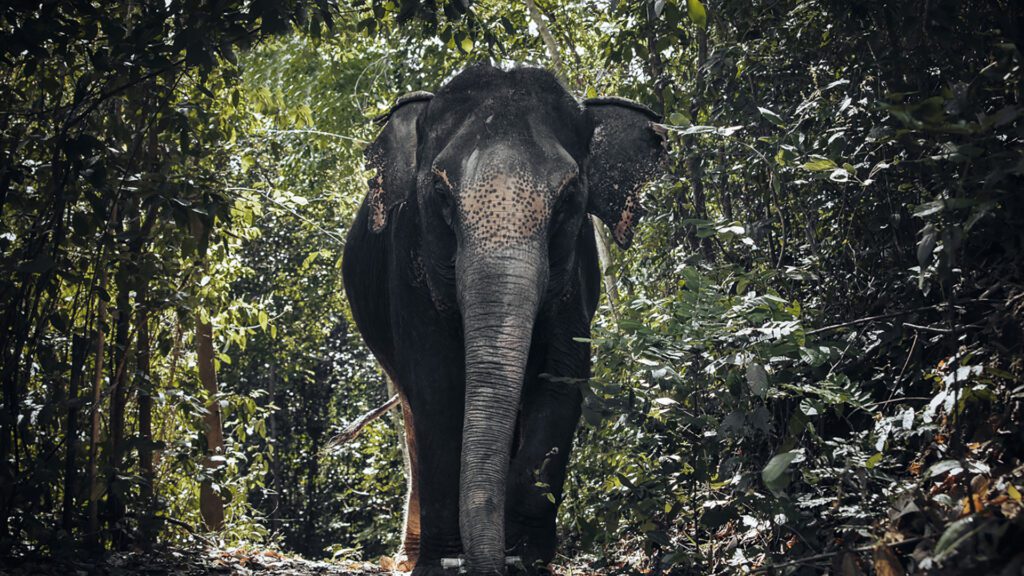
Support Ethical Elephant Activities in Phuket with Our Experiences
We hope we have inspired you to join one of our elephant experiences in Phuket. Your support plays its part in helping us to care for the rescued animals we have — and more in the future.
If you have any questions for us, please feel free to get in touch.
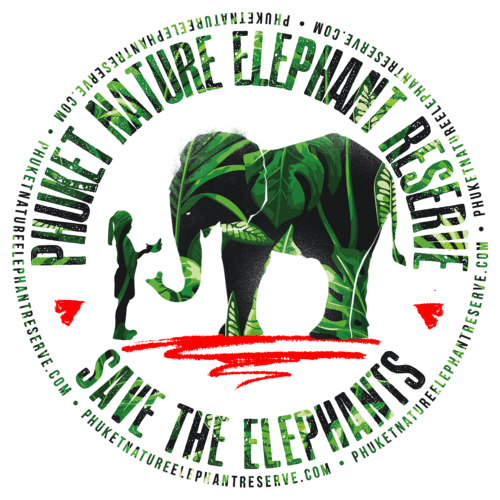
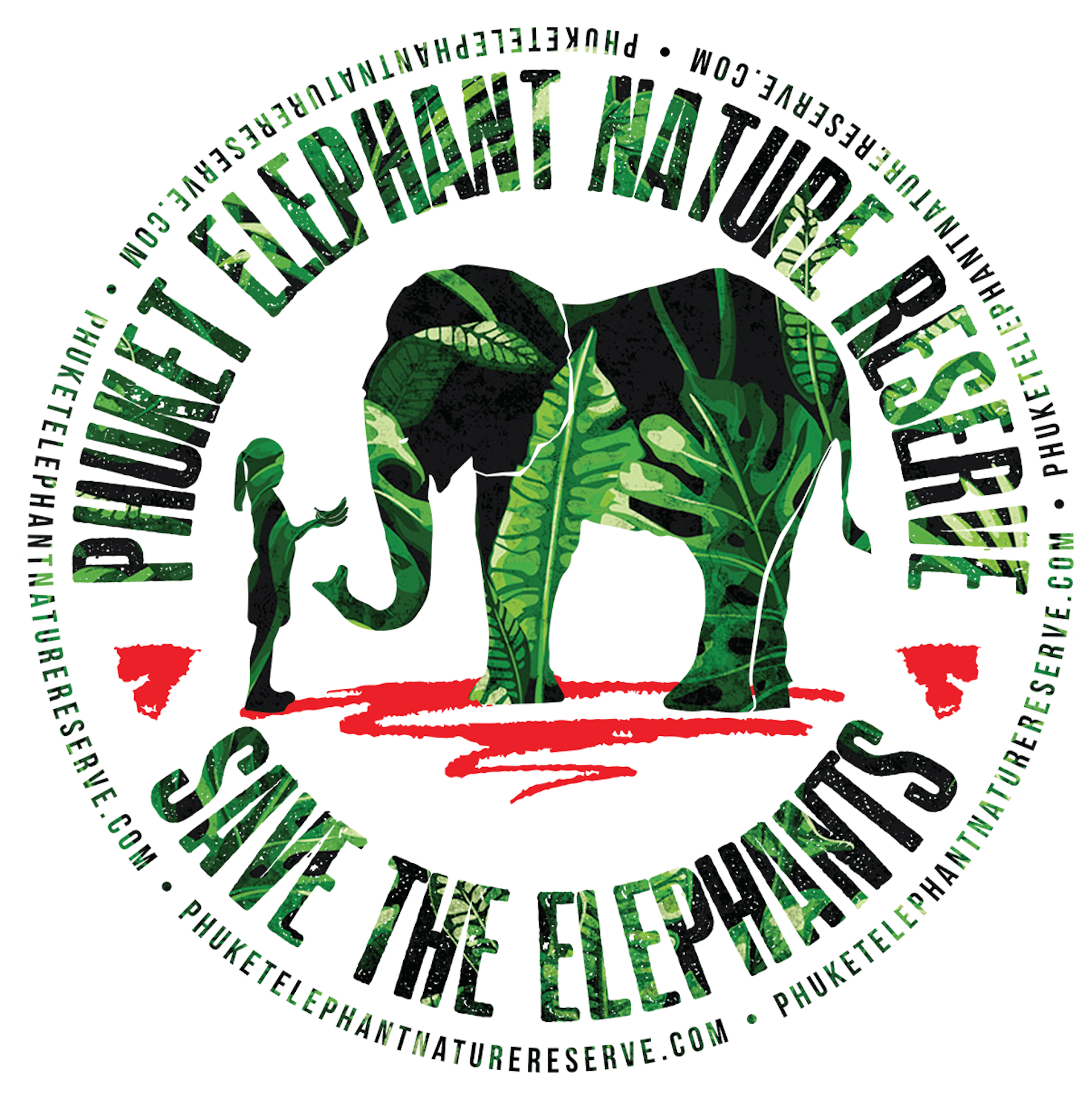
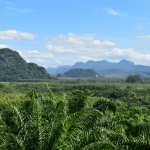


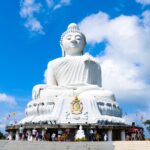
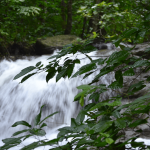
[…] We looked at elephant crushing in a previous blog, Should I Ride Elephants in Thailand? […]
[…] This is a topic we have covered in our previous blog, Should I Ride Elephants in Thailand? […]
[…] Learn more about ethical elephant activities by reading our previous guide Should I Ride Elephants in Thailand? […]